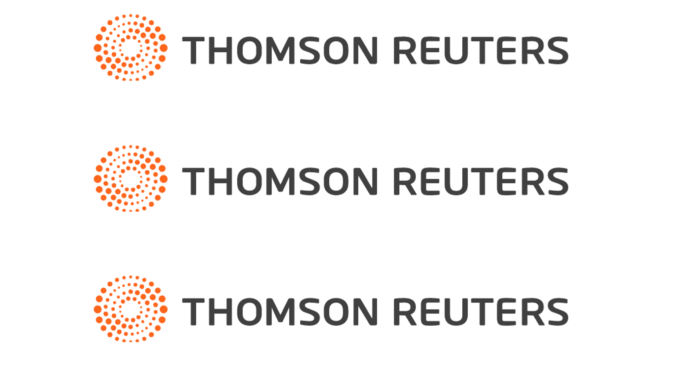
Thomson Reuters (TR) has joined the NLP-driven contract analysis club via its new HighQ Contract Analysis extension, a doc review and analysis tool that uses machine learning to ‘answer the specific questions legal professionals want to address in an easy-to-read report’.
It taps the know-how of Practical Law to provide pre-set NLP capabilities. And, as you’d expect, it integrates completely with the rest of HighQ. Users can analyze contracts in bulk as well as review a single document. I.e. it could be used inhouse for a single document review, or for a large transaction run via a law firm with many contracts.
This is a big step. For years this site has waited and wondered and often asked: when will TR launch their own NLP contract analysis tool, or buy one of the well-known brands in the market?
Well, here is the answer. They have made their own. The move also follows HighQ working with several NLP companies for several years, and perhaps it was inevitable they would get to this point eventually.
As the company said: ‘Contract review is a critical, yet time-consuming and painful part of transaction or contract management. HighQ Contract Analysis uses machine learning and pre-trained models to help attorneys increase efficiency, reduce risk, and accelerate the contract-review process for transaction due diligence, compliance review and contract investigation. Integrating seamlessly with HighQ, the company’s foundational asset in the collaboration and workflow automation market, it extends customers’ transaction workflow with richer insights and greater automation.’
And, Andy Martens, head of Research Products at Thomson Reuters, added. ‘HighQ Contract Analysis begins with the deep knowledge of Practical Law editors who use their expertise to develop proprietary contract review templates specific to legal domains, and then leverages the work of AI experts at Thomson Reuters Labs to train and validate its machine-learning models. The result is a highly tailored, guided review that saves our customers’ time and costs, and improves the accuracy and insights of the contract review process.’
Below is some info from HighQ and it’s a handy overview of what it can do.
From Thomson Reuters – ‘How it works
HighQ Contract Analysis is built around legal domains, beginning with real estate leases and sales and services agreements and soon extending to other areas, including intellectual property agreements and employment agreements. For each domain, Practical Law attorney editors develop a list of key questions reviewers might want to ask in a contract review exercise. For example, the tool can find answers to questions such as, “What are the landlord’s maintenance obligations?” or “Is there a mutual right to break?”
To kick off the review, the HighQ AI Hub ingests the document, classifies the contract, and identifies essential facts like parties, deal value, language and jurisdiction.
The new HighQ Contract Analysis pre-trained domain models then automatically extract and retrieve defined terms and definitions from within the agreement, divide the document into text snippets, evaluate every snippet against the review questions, and returns text that meets the criteria relevant to answering each question.
Its intuitive Guided Review interface allows users to assess those answers, comment, annotate and assign risks in the document. Users can analyze contracts in bulk as well as review a single document. HighQ Contract Analysis also allows users to compare contracts to an identified company standard or Practical Law standard documents, enabling reviewers to quickly identify non-standard terms, deviations and additional risks.
Sophisticated AI and integration
HighQ Contract Analysis provides an integrated experience, enabling customers to view and edit machine-learning extraction results, annotate documents and collaborate with teams – all within HighQ. Users can leverage HighQ collaboration, workflow and visualization tools to conduct further analysis and generate reports on top of the extracted data.
Later this year, HighQ Contract Analysis will release its AI Model Trainer, which will provide an easy-to-use, end-to-end process to manage, re-train and evaluate the machine-learning data models to refine their analysis of a user’s own contracts. Longer term, users will be able to define their own models, managing the questions and facts to match their, and their client’s, expectations.’
—
So, there you go. It’s taken some years, but now we are there. Should Kira, Luminance and others be worried? Probably not just yet. But, this will no doubt start to see some traction, especially among those who have extensive TR licences already. The fact that this is part of HighQ – where a lot of the output of NLP review might be headed from other applications already – will no doubt also help them.